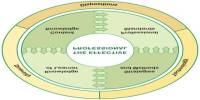Instrumentalism is the view that scientific theories should be thought of primarily as tools for solving practical problems rather than as meaningful descriptions of the natural world. It explains the grounds of John Dewey (1859-1952) and Karl Popper (1902-1994) for their irreconcilable judgments, which are still embedded in popular understanding of the school, and describes the practice of followers of each philosopher, demonstrating that neither philosopher’s judgments have achieved universal assent, leaving the school’s meaning and legitimacy in modern scientific inquiry indeterminate. This article focus that Dewey and Popper remain sources of both definitions of and confusion over the meaning of Instrumentalism.
Instrumentalism
















